Agency and Partnership on the Multistate Essay Exam (MEE): Highly Tested Topics and Tips
Agency and Partnership are regularly tested on the MEE. The bar examiners often test the same issues, so it is worth knowing what these highly tested Agency and Partnership issues are.
1. First, know how Agency and Partnership are tested
Agency and Partnership are tested about once a year. Note that sometimes only Agency is tested and other times only Partnership is tested. Sometimes you will see a mixture of both Agency and Partnership principles tested on the MEE.
Agency is sometimes tested with other subjects, such as Torts.
The basic principles of Agency and Partnership tend to be tested on the MEE. Most MEE answers reference the Uniform Partnership Act (UPA), the Revised Uniform Partnership Act (RUPA), or the Restatement (Second) of Agency. If you took Agency and Partnership or Business Organizations in law school, the law you learned in your law school class should be very consistent with the law you are expected to apply on the MEE.
2. Be aware of the highly tested Agency and Partnership issues
The bar examiners tend to test several of the same issues repeatedly in Agency and Partnership questions. (We have a nice summary of these in our MEE One-Sheets if you want to see them in one place.)
Some of the highly tested Agency MEE issues include:
- Actual authority: This is one of the bar examiners’ favorite issues to test. Be prepared to write on an actual authority question, “Actual authority can beexpress, where the agent is expressly given authority to act for the principal. It can also be implied. Implied authority is present when the principal’s conduct leads the agent tobelieve that the agent has authority.
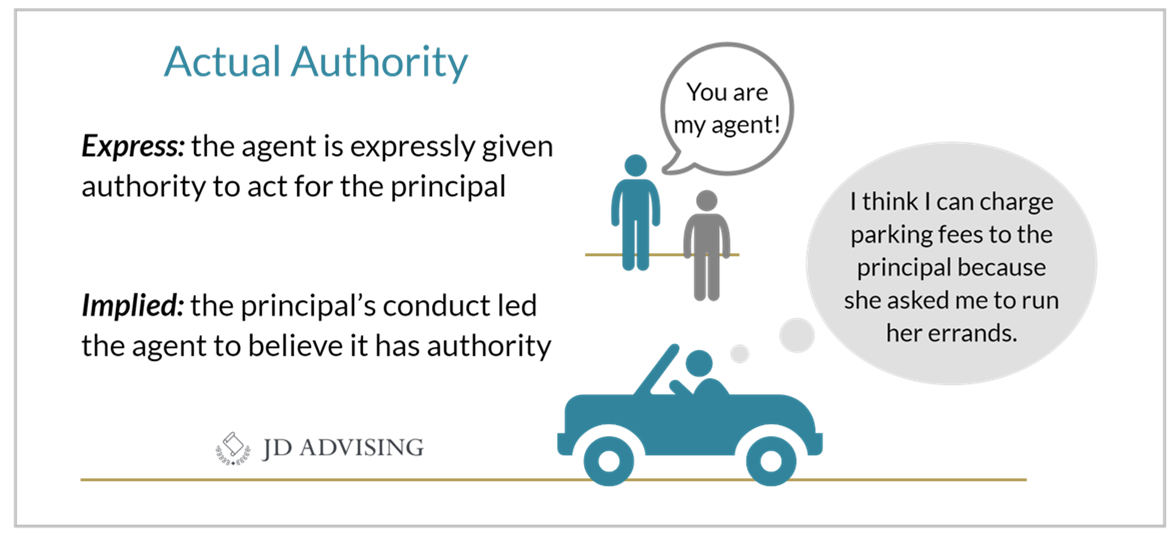
- Apparent authority: This is another very highly tested issue. Apparent authority exists when the person dealing with the agent does so with a reasonable belief in the agent’s authority, and that belief is generated by some act or neglecton the part of the principal.“
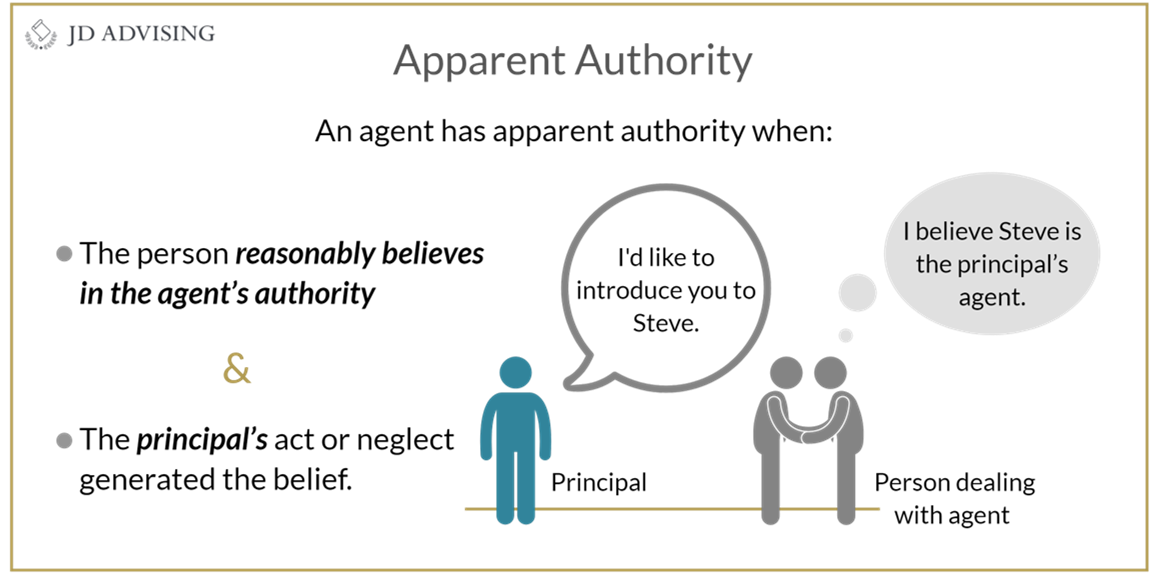
- Principles of vicarious and direct liability also are frequently tested. Remember that an agent is always liable for her own torts. A principal can be vicariously liable if the agent or employee was acting in the scope of their employment, made aminor deviation from their employment, or committed an intentional tort(1) for the principal’s benefit, (2) because the principal authorized it, or (3) that arose naturally due to the nature of employment.
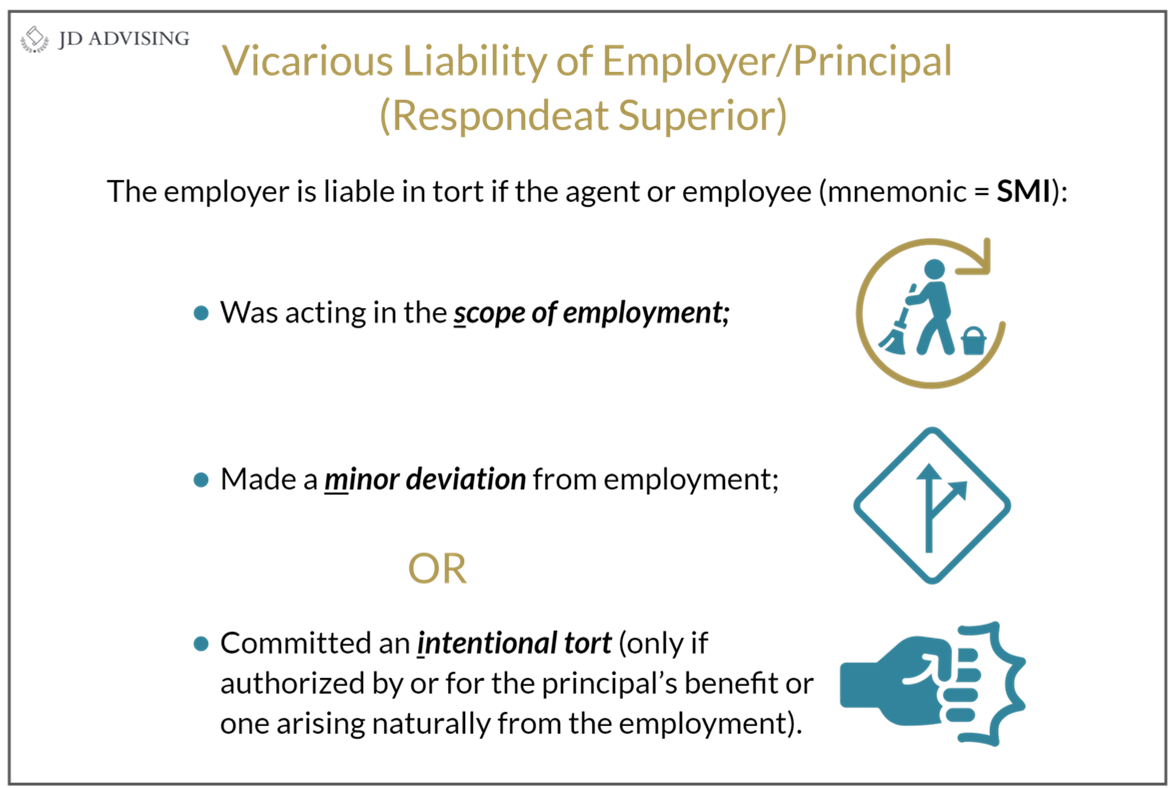
- Liability of a principal and agent for contracts entered into by the agent. This is an issue that has been tested recently in Agency and Partnership on the MEE. The agent is bound to a third party on a contract she enters into with the third party if the agent had no actual or apparent authority to enter into the contract. The agent also is liable on the contract if the principal is undisclosed(i.e., the third party does not know the agent is acting on another’s behalf) or if the principal is partially disclosed (i.e., the third party knows the agent is acting on behalf of another but does not know the identity of the principal).
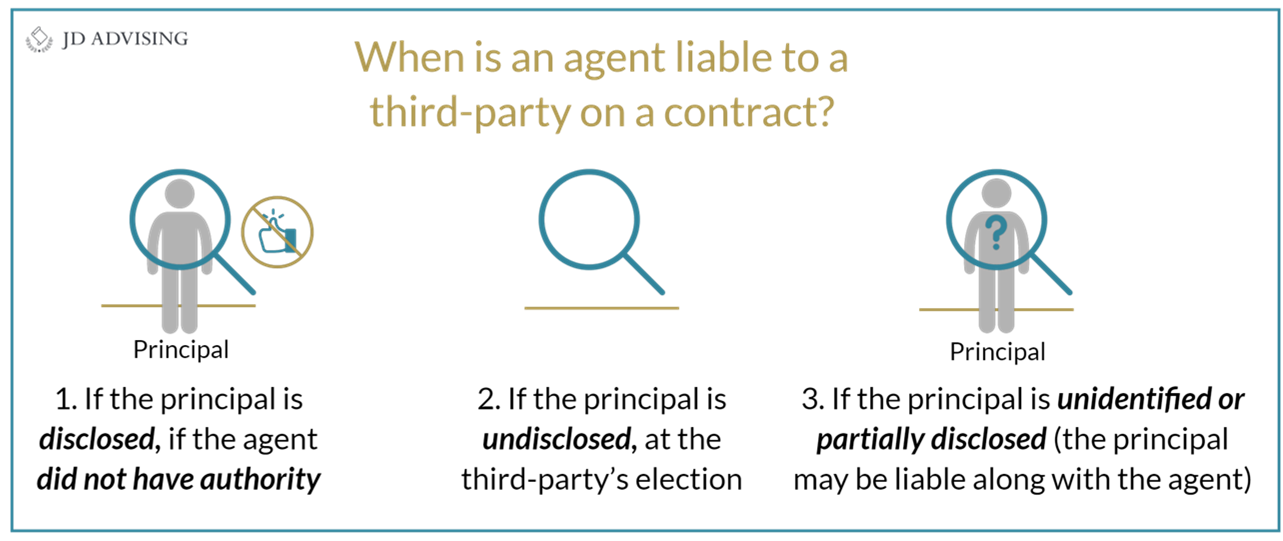
Some of the highly tested Partnership MEE issues include:
- Formation: A partnership is the association of two or more persons to carry on as co-owners, a business for profitwhether or not the persons intended to form the partnership. Remember that it is very easy to form a general partnership. No paperwork needs to be filed, as a general partnership is the default entity if parties improperly try to form another business association (e.g., a limited liability partnership). So, in general, if the question is, “Was a general partnership formed?” the answer usually is, “Yes!”

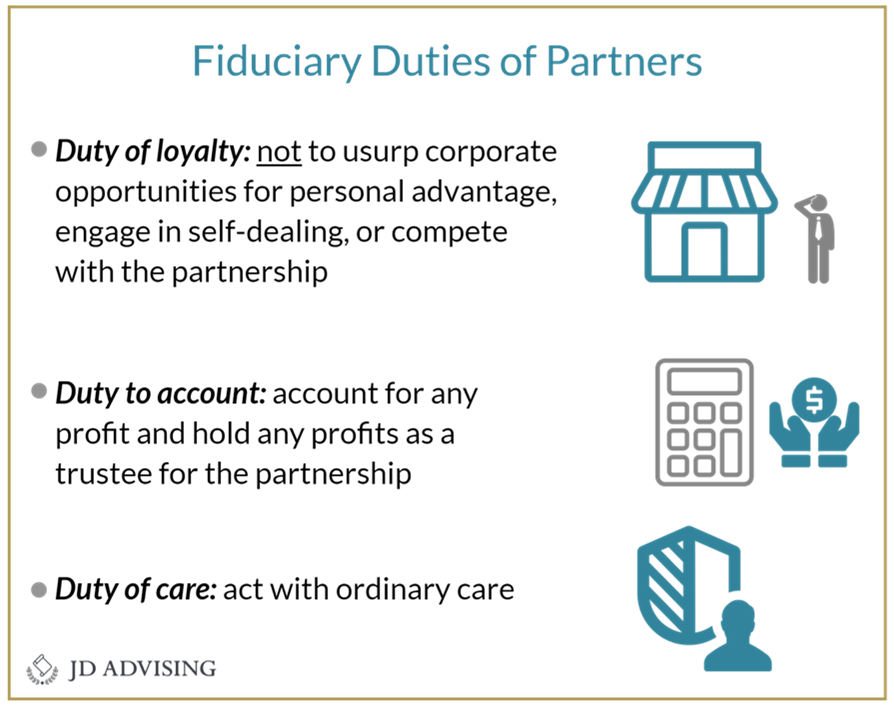
- Be aware of how a partnership ends . There are three ways to end a partnership: (1) death of any partner, (2) end of a definite term or completion of an undertaking, and (3) a partner’s dissociation (withdrawal). Dissociation is the most highly tested method of ending a partnership on the MEE. When a partner dissociates, dissolution of the partnership occurs unless the remaining partners agree to rescind the dissolution. Dissolution is not the end of the partnership but triggers the winding up of the partnership. Winding up is the procedure by which the partnership assets are liquidated and the partnership creditors are paid. The partnership then terminates.
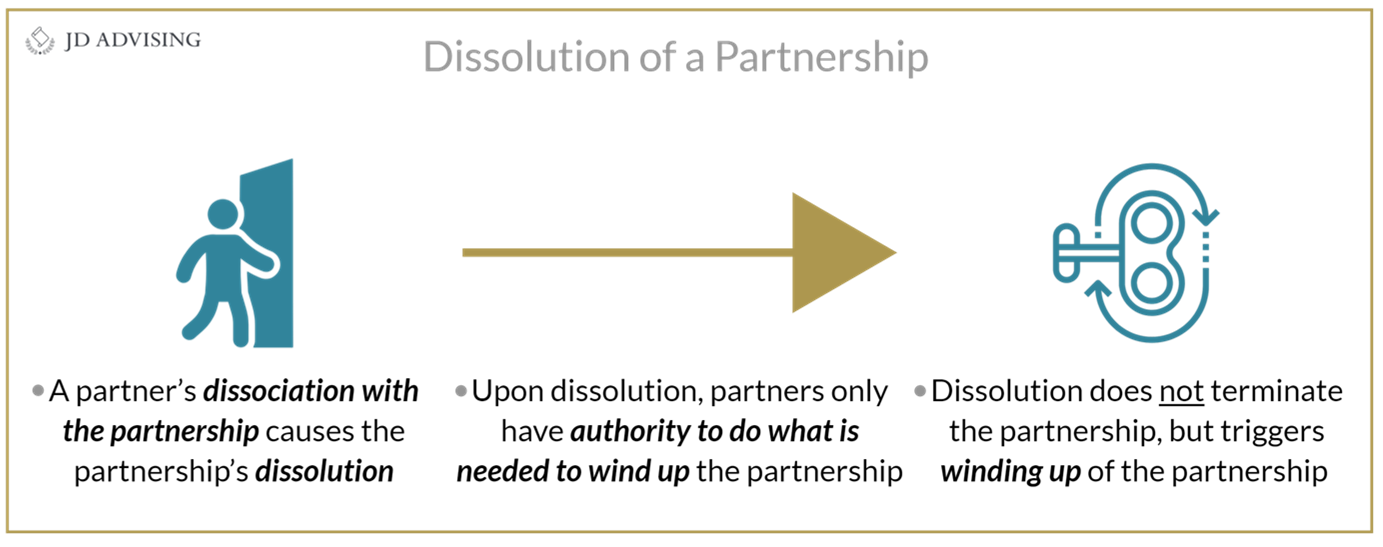
- Limited Liability Partnerships (LLPs) and Limited Partnerships (LPs) are sometimes tested. Oftentimes on the MEE, a partner will commit a tort before an LLP statement of qualification is filed and then file an LLP statement of qualification. The partner is still liable for any actions that took place before the conversion to an LLP.
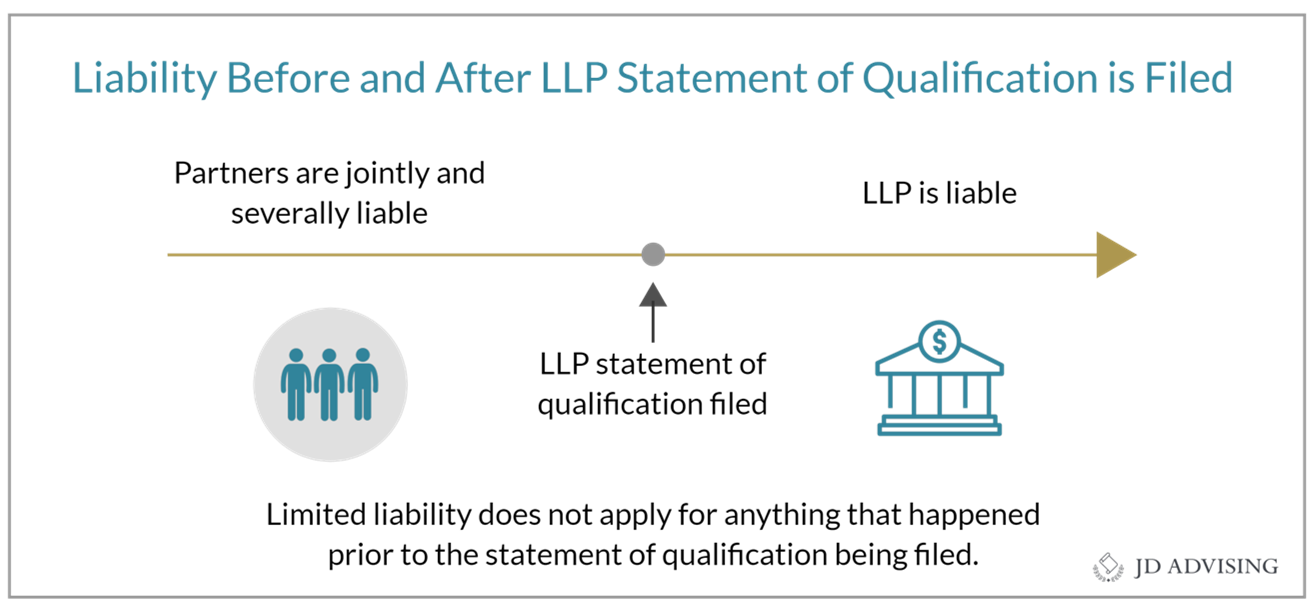
3. Key Agency and Partnership vocabulary
Students may know the general principles of Agency and Partnership but sometimes forget the key vocabulary or legal “buzzwords” to use. We recommend that you use these words and bold or underline them to draw attention to them in your MEE answers.
Agency and Partnership “buzzwords”
- Be sure to use the terms actual authority, apparent authority, and ratification. Ratification occurs when the principal affirms or accepts the agent’s acts even though the agent did not have authority to act on the principal’s behalf.
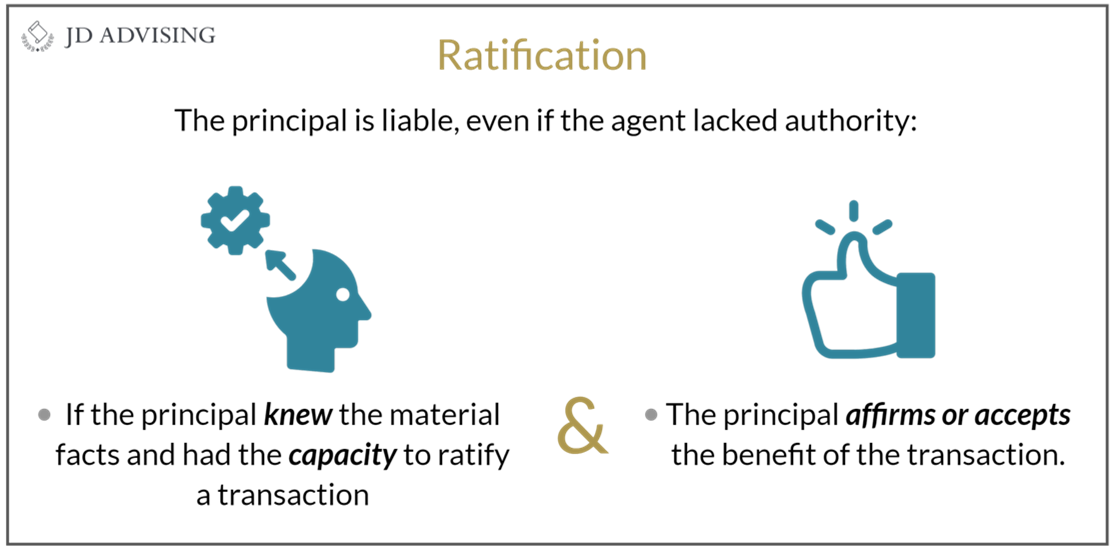
- Be able to label the principal (the one who the agent is acting on behalf of) and the agent (the person under the principal’s control).
- Use the term vicarious liability when the principal is liable for a tort committed by an agent (even though the principal herself did nothing wrong). Be able to distinguish this from direct liability (e.g., negligent hiring).
- Be able to define partnership: the association of two or more persons to carry on as co-owners in a business for profit, whether or not the persons intended to form a partnership.
- Know the differences between how the general partnership and limited liability partnershipforms. A general partnership is the default partnership, and partners are joint and severally liable. A limited liability partnership is created by filing a statement of qualification, and partners are not personally liable for the partnership’s obligations.
- Know the differences between dissociation(a partner’s withdrawal from the partnership), dissolution(the partnership’s activities usually cease), winding up(partnership assets are liquidated and the creditors are paid), and termination (the end of the partnership).
Being familiar with key vocabulary will help you gain credibility with the grader, and it will help you maximize your MEE score!
4. Practice!
The best way to excel at Agency and Partnership on the MEE is to practice writing answers to essay questions. This will help you become acquainted with how Agency and Partnership are tested. And it will help you master the highly tested issues.
Here, we provide you with some links to free Agency and Partnership MEE questions and NCBE point sheets. (If you would like to purchase a book of Agency and Partnership questions and NCBE point sheets from 2000 to the most recent administration, check out our MEE books here. You can also see some exams on the NCBE website for free here.)
- February 2016 Agency and Partnership MEE: this MEE covers limited liability partnerships and fiduciary duties of partners.
- February 2015 Agency MEE (combined with Torts): This MEE covers vicarious liability. As noted above, Agency is often tested with another subject.
- February 2014 Partnerships MEE: this MEE covers general partnerships and limited liability partnerships.
- February 2013 Agency MEE: this MEE covers an agent’s liability on a contract.
- February 2014 Partnerships MEE: this MEE covers general partnership concepts.
- February 2009 Agency MEE: this MEE covers actual and apparent authority.
Go to the next topic, Corporations and LLCs.
Seeking MEE Expertise?
- Free Bar Exam Resource Center: Explore for leading guides, articles, and webinars.
- Expert-Crafted Bar Exam Guides: Unveil insights on high-frequency MEE topics and strategies for success.
- Free Webinars: Engage with top bar exam experts.
🔥 Top-Rated MEE Resources
- MEE One-Sheets: Boost your confidence with our most popular bar exam product!
- Bar Exam Outlines: Our comprehensive and condensed bar exam outlines present key information in an organized, easy-to-digest layout.
- NEW MEE Mastery Class: Unearth focused, engaging reviews of essential MEE topics.
- Bar Exam Crash Course and Mini Outlines: Opt for a swift, comprehensive refresher.
- MEE Private Tutoring and feedback: Elevate your approach with tailored success strategies.
- MEE Course: Preview our acclaimed five-star program for unmatched instruction, outlines, and questions.
🔥 NEW! Dive deep into our Repeat Taker Bar Exam Course and discover our unrivaled Platinum Guarantee Pass Program.
Tags: bar exam, multistate essay exam (MEE), New York Bar Exam, uniform bar exam (UBE)
Share this entry
Related posts
rachel@jdadvising.com says:
Each One-Sheet (front and back) focuses on one subject. There are 14 One-Sheets which will help you master the most highly tested MEE material!
MUSTAFA KAHUWATI says:
Is MEE one-sheets including all topics or each one-sheet has only one topic ?
Leave a Reply
Want to join the discussion?
Feel free to contribute!
Leave a Reply
Highly Tested MEE Topics
- Introduction to the Guide
- Agency and Partnership
- Corporations and LLCs
- Civil Procedure
- Conflict of Laws
- Constitutional Law
- Contracts and Sales
- Criminal Law and Procedure
- Evidence
- Family Law
- Real Property
- Secured Transactions
- Torts
- Decedents’ Estates
- Trusts and Future Interests
- Download the Guide
By using this site, you allow the use of cookies, and you acknowledge that you have read and understand our Privacy Policy and Terms of Service.
Cookie and Privacy Settings
How we use cookies
We may request cookies to be set on your device. We use cookies to let us know when you visit our websites, how you interact with us, to enrich your user experience, and to customize your relationship with our website.
Click on the different category headings to find out more. You can also change some of your preferences. Note that blocking some types of cookies may impact your experience on our websites and the services we are able to offer.
Essential Website Cookies
These cookies are strictly necessary to provide you with services available through our website and to use some of its features.
Because these cookies are strictly necessary to deliver the website, refusing them will have impact how our site functions. You always can block or delete cookies by changing your browser settings and force blocking all cookies on this website. But this will always prompt you to accept/refuse cookies when revisiting our site.
We fully respect if you want to refuse cookies but to avoid asking you again and again kindly allow us to store a cookie for that. You are free to opt out any time or opt in for other cookies to get a better experience. If you refuse cookies we will remove all set cookies in our domain.
We provide you with a list of stored cookies on your computer in our domain so you can check what we stored. Due to security reasons we are not able to show or modify cookies from other domains. You can check these in your browser security settings.
Check to enable permanent hiding of message bar and refuse all cookies if you do not opt in. We need 2 cookies to store this setting. Otherwise you will be prompted again when opening a new browser window or new a tab.
Click to enable/disable essential site cookies.
Other external services
We also use different external services like Google Webfonts, Google Maps, and external Video providers. Since these providers may collect personal data like your IP address we allow you to block them here. Please be aware that this might heavily reduce the functionality and appearance of our site. Changes will take effect once you reload the page.
Google Webfont Settings:
Click to enable/disable Google Webfonts.
Google Map Settings:
Click to enable/disable Google Maps.
Google reCaptcha Settings:
Click to enable/disable Google reCaptcha.
Vimeo and Youtube video embeds:
Click to enable/disable video embeds.
Privacy Policy
You can read about our cookies and privacy settings in detail on our Privacy Policy Page.
We are using cookies to give you the best experience on our website.
You can find out more about which cookies we are using or switch them off in settings .










